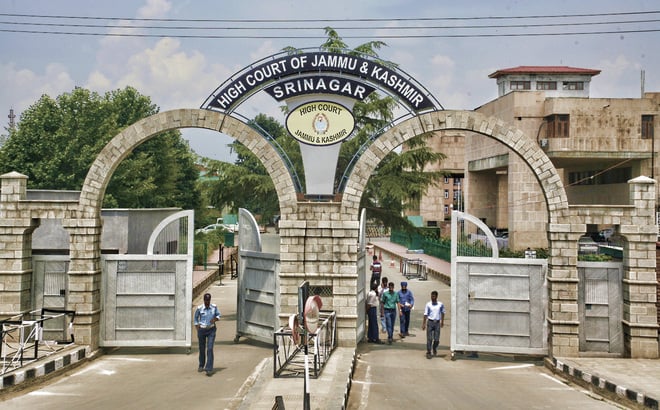The Jammu and Kashmir High Court has upheld the decision to cancel liquor vend licenses while stating that excise policies were framed from time to time in the most arbitrary and irrational manner, just to benefit those who had access to the corridors of power and without any focus on revenue generation.
A division bench of Acting Chief Justice Rajesh Bindal and Justice Sanjay Dhar passed directions for framing of new Excise Policy for 2021-2022, strictly in accordance with the Jammu and Kashmir Excise Act and the law laid down by the Supreme Court on the subject.
The Court directed that the liquor vends already operating shall be allowed to continue till March 31, 2021 and thereafter the license shall be allotted in terms of the Excise Policy to be notified by the Government for 2021-2022. The Government shall be at liberty to take appropriate steps in view of striking down of the provisions of the excise policies, which envisage grant and automatic renewal of licences for a period of five years.
The Court has also held that renewal of licenses for trade in liquor is not a matter of right, which can be enforced. For the purpose of renewal of licenses for trade in liquor, if permissible in law, all the conditions applicable for grant of a new license shall also be applicable, the Court said.
The Court noted in its order that it has once again been called upon to clear the skeletons from the cupboard in the Union Territory of Jammu and Kashmir. The case in hand is not in isolation where rule of law has been kept aside and there is total arbitrary exercise of power.
The Court was hearing the batch of pleas against the show-cause notices issued to the appellants for cancellation of their temporary licenses granted on 20/08/2005, which were valid up to 19/12/2005 but renewed from time to time during the pendency of the matter. The High Court noted that writ petition filed by the appellants were disposed of by the learned Single Judge giving liberty to the government to review its Excise Policy keeping in view earlier judgments of this Court. The Court noted that the matter was kept pending for 12 years before it was admitted for hearing on 23/03/2017 against the order of Single Judge.
The Court called it a Connivance of the Government to allow them to operate despite the orders of the Court. “Connivance is also evident from the fact that the appeal was admitted on 23/03/2017 and there is nothing on record to show that any effort was made by the Excise and Taxation Department or the Law Department to get the matter expedited,” said the Court.
“The official respondents apparently were not interested to pursue the present petitions. Complete overhaul in the working of the Advocate General’s office is also required as it has also failed to protect the interest of the Government by showing delinquent behaviour in pursuing important matters, where huge revenue was involved. But this is not a case in isolation as this has become part of the system,” said the Court in its 52-page order.
It was observed by Court that without there being any advertisement issued, on an application filed by a favourite, the Finance Minister would order allotment of a vend and the allottee will continue for all times to come adding moreover two sub-vends granted in 2005-06 were regularized vide order dated 25-02-2019 and 60 vends were allotted on temporary basis in August 2005 for a period of four months and are continuing till date in view of various interim orders passed by this court in different cases filed by them, which are subject matter of consideration in the present cases.
Also Read: Bombay High Court grants bail to 20-year-old accused of sodomy
The division bench further said that the Supreme Court in numerous judgments has held that there is no fundamental right to do trade or business in intoxicants and the State under its regulatory powers has the right to prohibit absolutely every form of activity in relation to intoxicants-its manufacture, storage, export, import, sale and possession”, adding “grant of licenses to manufacture or sale of liquor would essentially be a matter of economic policy wherein the courts normally do not intervene but if the action appears to be plainly arbitrary, irrational and malafide interference is called for”.


